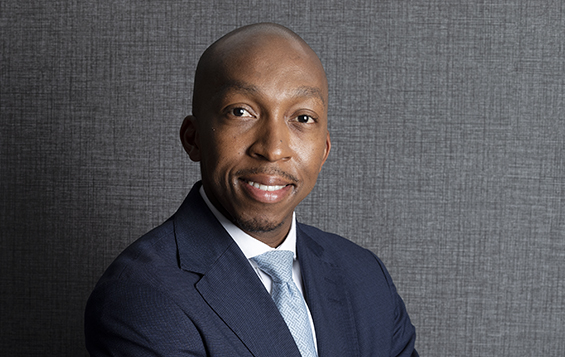Get Focus insights straight to your inbox
The unprecedented monetary policy measures taken by policymakers across the globe to soften Covid-19's economic impact have stoked concerns about an inflationary environment once some semblance of normality returns says Itumeleng Merafe, Head of Interest Rate Structuring, Investec Corporate & Institutional Banking.
Interest rates in Europe are in negative territory, while rates in the US and UK at or close to zero. The South African Reserve Bank (SARB) followed a similar approach, lowering the repo rate by a cumulative 300 basis points this year to a historic low of 3.50% pa.
“Aggressive fiscal measures in the form of quantitative easing could also create inflationary pressures as money supply increases globally,” says Merafe. “In fact, the US Federal Reserve, for example, injected monetary stimulus into the country's financial system at its fastest rate in over 200 years. Yet, much like these interventions, the pandemic's economic effects are also unprecedented. The supply-side shocks to supply chains and global trade would likely increase inflationary pressure due to the resultant pass-through costs.
"However, the massive drop-off in demand for goods and services due to lockdowns, social distancing measures, job losses and curtailed discretionary spending have outweighed these supply constraints, driving down inflation.”
Multiple interest rate scenarios
The prodigious drop in oil prices, triggered by the Russia-Saudi Arabia price war and exacerbated by the global demand shock from Covid-19, also created a disinflationary environment as oil is a prolific input cost.
As a result, the question economists are grappling with is whether these confounding factors will create a long-lasting low-inflation environment, or stoke the flames of inflation as eased lockdown restrictions and low interest rates drive an explosion in demand, borrowing and spending.
“Multiple scenarios could play out,” says Merafe. “For instance, a vaccine would likely unleash pent-up consumer demand as infection fears dissipate. Inflation will likely rise as a consequence, and lingering supply constraints could accelerate this increase. Any normalisation in demand would also increase oil prices from current depressed levels. However, the general market consensus suggests a prolonged period of low inflation globally, although the dynamics at play in South Africa could buck the trend.”
South Africa, in particular, is exposed to the threat to inflation due to persistent rand weakness and volatility. The currency's devaluation during the market sell-off – the largest among emerging markets – creates a significant upside risk to increased dollar-based commodity prices.

South Africa risks entering a period of stagflation – low growth and high inflation – which is a dangerous economic situation that the country should avoid.
The worst case scenario
The extent and rate to which market demand returns could also result in a rapid rise in inflation, especially as local imports would increase in response.
“The fact that South Africa entered the crisis in a low-growth environment further complicates the scenario,” adds Merafe. “Consumers were already under pressure, and business confidence was low. The government-mandated lockdown further dampened these indicators – business confidence in Q2 2020 reached its lowest level in 45 years. A robust economic recovery hinges on rising business and consumer confidence to drive spending, which would feed into inflation. In response, the SARB will need to eventually hike rates as per its mandate to contain inflation within its target 3-6% range.”
The major risk is the pace at which inflation returns – a rampant rise would force the Reserve Bank to hike rates more rapidly, which would likely dampen consumer sentiment and reduce spending.
“When this happens in a low growth environment, South Africa risks entering a period of stagflation – low growth and high inflation – which is a dangerous economic situation that the country should avoid,” says Merafe.
The SARB faces a difficult balancing act trying to keep interest rates low for as long as possible to stimulate spending while containing inflation. To avoid this worst-case scenario, the South African government must focus on stimulating economic growth based on how it administers and deploys its R500 billion financial support package.
Keep economy open
Merafe says that the government must also trust that the lockdown served its purpose by preparing the healthcare system for the pending infection surge. “As the country grapples with its spike, the economy should remain open to stimulate growth, and the government should avoid knee-jerk reactions, like sending the nation into another hard lockdown.”
The market should also expect, and welcome, a moderate uptick in inflation, as this is indicative of growth. Current expectations suggest local inflation will increase in 2021 as the economy rebounds.
“Managing the numerous factors currently at play will ultimately determine how tightly wound the inflationary 'elastic' becomes and how severe the recoil will be. Too much tension and inflation will surprise to the upside, which would severely constrain the country's economic recovery efforts,” concludes Merafe.
This article originally appeared in the print edition of Daily Dispatch.
About the Author

Head of Sales: Investec For Business
Itumeleng Merafe
Currently the Head of Sales for Investec For Business, Itumeleng started his career as a retail treasury consultant at Investec, servicing individuals and small corporates. He joined the Treasury Structuring team in 2011 as a consultant and was appointed as head of the team in 2015. Itumeleng holds a BCom in Economics and Investment management, has completed the Finance Executive Development Programme at Cass Business School, holds an ACI dealing certificate, and a Masters in the management of finance and investments.




